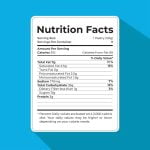
Nutritional yeast has been gaining popularity in recent years for its versatile use in human diets. But can dogs have nutritional yeast too? In this article, we will explore the safety and potential benefits of incorporating nutritional yeast into your dog’s diet.
Contents
What is Nutritional Yeast?
Nutritional yeast, often referred to as “nooch,” is a deactivated yeast strain, typically Saccharomyces cerevisiae. It is grown specifically to be used as a food product. Nutritional yeast is known for its cheesy and nutty flavor, making it a popular ingredient in vegan and vegetarian dishes. It is often used as a seasoning or to create dairy-free cheese sauces.
Nutritional Yeast Benefits
Nutritional Value
Nutritional yeast is a powerhouse of essential nutrients. It is rich in vitamins, including B-complex vitamins, such as B1, B2, B3, B6, and B12. These vitamins are crucial for your dog’s overall health, especially their nervous system, skin, and coat.
Source of Essential Nutrients
In addition to vitamins, nutritional yeast is a good source of protein, which is essential for muscle development and overall well-being. It also contains minerals like zinc, selenium, and iron, which are vital for a dog’s immune system and energy levels.
Is Nutritional Yeast Safe for Dogs?
The safety of nutritional yeast for dogs largely depends on individual factors. While it can provide various benefits, it’s essential to exercise caution.
Consult Your Veterinarian
Before adding nutritional yeast to your dog’s diet, it’s crucial to consult with your veterinarian. They can provide guidance based on your dog’s specific needs, dietary restrictions, and any potential allergies.
Potential Benefits for Dogs
Many pet owners have reported positive effects when introducing nutritional yeast into their dog’s diet. It can enhance the taste of their food, making it more appealing to picky eaters. Additionally, the nutrient profile of nutritional yeast can support your dog’s overall health.
How to Introduce Nutritional Yeast to Your Dog’s Diet
If your veterinarian approves, here’s how you can introduce nutritional yeast to your dog’s diet:
Start Slowly
Begin with a small amount and gradually increase it. This allows your dog’s digestive system to adjust to the new addition.
Watch for Allergic Reactions
Keep an eye out for any signs of allergies, such as itching, gastrointestinal upset, or changes in behavior. If any adverse reactions occur, discontinue use immediately.
Nutritional Yeast Dosage for Dogs
The appropriate dosage of nutritional yeast for dogs can vary based on their size and specific dietary needs. Your veterinarian can provide you with the best guidance regarding the right amount to include in your dog’s meals.
Nutritional Yeast Recipes for Dogs
Here are some simple and delicious recipes that incorporate nutritional yeast into your dog’s diet:
Nutritional Yeast Dog Treats
Create homemade dog treats by mixing nutritional yeast with ingredients like peanut butter and whole wheat flour.
Nutritional Yeast on Dog Food
Sprinkle a small amount of nutritional yeast on top of your dog’s regular food to enhance the taste and nutritional content.
Common Concerns and Misconceptions
It’s essential to be aware of common concerns and misconceptions surrounding nutritional yeast and dogs. One such misconception is that it can replace essential nutrients from traditional dog food. Nutritional yeast should be seen as a supplement, not a replacement.
Conclusion
In conclusion, nutritional yeast can be a safe and nutritious addition to your dog’s diet when used responsibly. It offers a range of essential vitamins and minerals, but consulting with your veterinarian is crucial before introducing it to your furry friend’s meals. Always monitor your dog for any adverse reactions and adjust the dosage as needed.
FAQs
- Is nutritional yeast safe for all dogs?
- Nutritional yeast can be safe for many dogs, but individual factors such as allergies and dietary needs must be considered.
- Can I use nutritional yeast to entice a picky eater dog?
- Yes, the cheesy flavor of nutritional yeast can make food more appealing to picky eaters.
- What are the signs of an allergic reaction to nutritional yeast in dogs?
- Allergic reactions can manifest as itching, gastrointestinal issues, or changes in behavior.
- How much nutritional yeast should I feed my dog?
- The appropriate dosage varies by dog size and dietary needs, so consult your veterinarian for guidance.
- Can nutritional yeast replace traditional dog food?
- No, nutritional yeast should be used as a supplement, not a replacement for balanced dog food.



